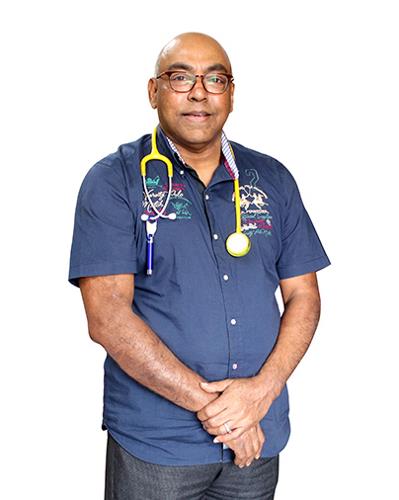Prepared by Dr Lua Guan Way
Consultant Gastroenterologist and Hepatologist
Gleneagles Medini Hospital
1. What is Gastritis? And what are their symptoms?
Gastritis refers to a group of conditions that develop from the inflammation, irritation, or erosion of the protective lining of the stomach. It most commonly results from an infection by the same bacterium that triggers stomach ulcers.
Gastritis comes in either one of two forms, depending on the severity of the inflammation and the length of the incubation period. Acute gastritis and chronic gastritis share similar symptoms, namely loss of appetite, recurrent nausea and vomiting, indigestion,
and a feeling of bloating particularly after a meal. However, the pain stemming from acute gastritis occurs more suddenly but is temporary, while chronic gastritis causes duller and longer-lasting pain. Left unchecked, both can lead to ulcers
or an increased risk of stomach cancer.
Regardless, gastritis is not a huge worry with prompt and appropriate treatment.
2. What causes gastritis in the first place?
Your stomach lining secretes mucus to protect against damage by corrosive digestive juices. Gastritis occurs due to the inflammation of this layer of tissue. The primary source of the condition is a bacterial infection of Helicobacter pylori (H. pylori),
which can cause ulcers and in severe cases, stomach cancer. It is usually passed from person-to-person contact but may be transmitted via contaminated food or beverages as well.
Other risk factors can also engender gastritis, including alcohol, drug, and tobacco abuse, routine use of anti-inflammatory medication, extreme stress, chronic vomiting, and old age.
3. What are the main causes (besides lifestyle) that may cause expecting mothers to experience extra discomfort following gastritis?
Women who already live with gastritis will suffer an aggravation of the disease during pregnancy. This is due to fluctuating hormone levels combined with the pressure that a growing foetus places on the body. In addition to the typical symptoms, expecting
mothers may also experience heartburn, toxicosis accompanied by severe vomiting, stomach pain, flatulence, and diarrhoea.
4. When gastritis happens, are there any side effects on the pregnancy?
While a pregnant woman afflicted with gastritis may encounter exacerbated symptoms, there is no negative effect on the course of pregnancy and the development of the child.
5. What different sort of gastritis problems would occur with expecting mothers? Are any of these to be taken more seriously over the other?
Heartburn, vomiting, stomach pain, flatulence, and diarrhoea pose minor inconveniences during pregnancy but could indicate serious health issues depending on the severity and frequency. Use self-help measures and home remedies to relieve negligible irritation.
Visit your specialist should the problems persist.
6. Are there medications you would recommend expecting mothers to take for relieve of these discomforts?
Antacids containing aluminium, calcium, and magnesium were not found to be teratogenic in animal studies and are recommended as first-line treatment of heartburn and acid reflux during pregnancy. Over-the-counter antacids such as Gaviscon may help
you cope with occasional heartburn symptoms. The doctor may also prescribe Histamine-2 blockers (such as ranitidine or cimetidine) or proton pump inhibitors (such as omeprazole) if your symptoms do not respond well to antacids. Although there
is no evidence suggesting that these medication use is harmful during pregnancy, it is recommended that the drug only be used during pregnancy as needed, when no other options are available. If you are experiencing nausea and vomiting (especially
during the early trimester), your doctor may prescribe you certain antiemetic medication, such as Metoclopramide (brand name Maxolon) and Domperidone (brand name Motilium). However, some women with the more severe form of pregnancy sickness, Hyperemesis
Gravidarum, may require further hospitalisation and investigation.
7. Does the effect of gastritis heighten solely due to pregnancy?
No, it may be due to underlying pre-existing diseases, such as presence of Helicobacter pylori infection or peptic ulcer disease.
8. Besides medications, what can pregnant mothers do to ease gastritis discomforts?
Changes should be made to your dietary habits. Cut out foods that are spicy, fried, acidic, and high in fat content as these can cause gastritis flare-ups. Caffeinated drinks are also culprits, so swap your coffees and sodas with herbal teas and flavoured
water. Certain dishes like red meat, pork, and refined foods may not elicit immediate reaction but could exacerbate pain in the long-term. Instead of having three big meals, space out about four to six reduced portions throughout the day. Your plate
should consist of foods that are easy for your stomach to break down, for example low-fat dairy products, soup, porridge, as well as steamed or boiled lean meat and fish. Wash it all down with a fresh juice made out of fruits and vegetables.















